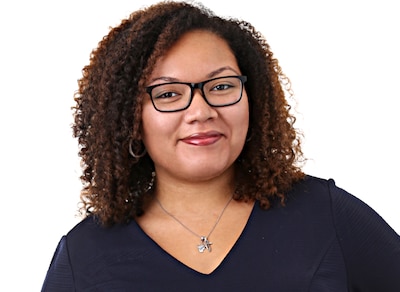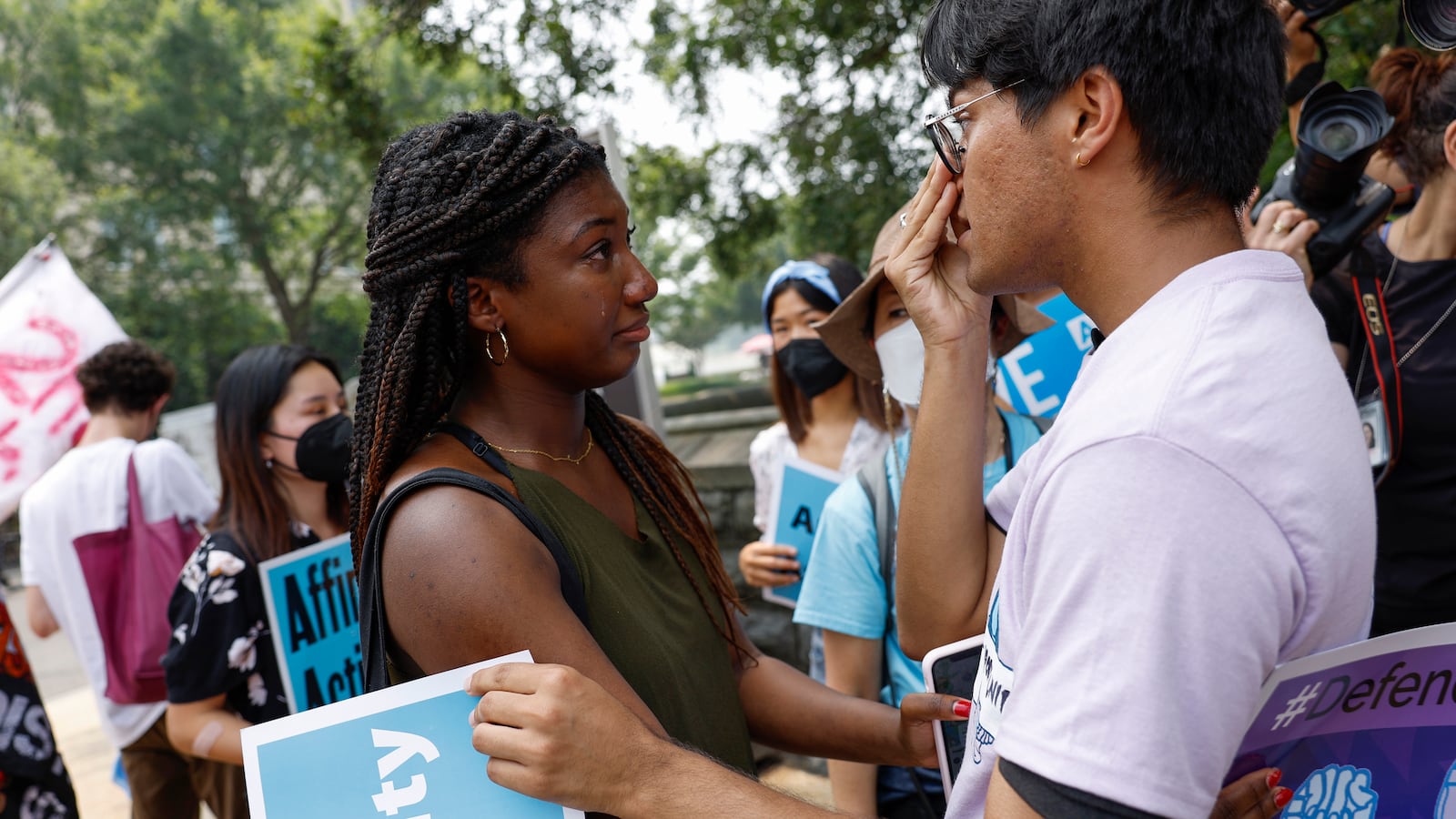There is no way to define what is being Latina. For me, it used to be just an identifier, the thing I’d say when somebody asked, “Hey, what are you?” It has been recently in high school, however, that my identity as a Latina has grown to become the backbone of my voice.
These were the opening lines to my own college application essay in 2012.
Affirmative action is in the news again, with the Supreme Court ruling this week that race-conscious admissions policies at Harvard and the University of North Carolina violate the 14th Amendment of the Constitution. But affirmative action was already a hot topic among my high school classmates over a decade ago.

I remember sitting at a large round table, filled with my mostly white and affluent peers, debating, as was the class assignment, whether affirmative action should still be in place. While one side of the room argued that it provided an unfair advantage to certain students, the other pointed out that, given the history of this country, the policy was necessary to make space on college campuses for students of color.
At the time, college was still a couple of years off for me. But I knew then that what we were ‘hypothetically’ discussing impacted me in a very real way.
As a Black and brown girl from Brooklyn attending a small and predominately white private high school, being able to highlight my identity was crucial for me. Most of my friends were fellow students of color who had gotten to our school through neighborhood college access programs. Whether it was putting together the Latino History Month assembly or attending yet another student diversity conference, taking opportunities to express my culture was my entire high school experience.
So, when it came time to apply to college, my identity as a young woman from a very Nuyorican family was at the center of it all. In my college research and campus visits, I sought out affinity groups and faces that looked like mine. My Latina identity appeared in the answers to most of the supplemental essay questions I responded to and as a discussion point in all of my college interviews.
For decades, affirmative action has had its naysayers, some of whom believe that beneficiaries of the policy are unfairly taking spots at highly selective universities. After being accepted to an Ivy League institution myself, I heard comments such as, “She only got in because she’s Hispanic.” This Supreme Court ruling, however, is likely to leave students of color even more vulnerable to being left out and behind in the world of higher education.
Writing for the majority, Chief Justice John Roberts noted that “nothing in this opinion should be construed as prohibiting universities from considering an applicant’s discussion of how race affected his or her life, be it through discrimination, inspiration, or otherwise.”
But Justice Sonia Sotomayor, in her dissent, called this carve-out “a false promise to save face.” She wrote: “This supposed recognition that universities can, in some situations, consider race in application essays is nothing but an attempt to put lipstick on a pig. The Court’s opinion circumscribes universities’ ability to consider race in any form by meticulously gutting respondents' asserted diversity interests.”
What is at risk here is students being able to include a core part of themselves throughout the application process. For many applicants, particularly students of color, talking about one’s cultural background provides important context. Though the ruling doesn’t ban students from talking about how race impacts them in, say, their essays, it limits how they can discuss it to the boxes the Court deems appropriate. This adds yet another hurdle for Black and Latinx students that white applicants never have to consider.
For many applicants, particularly students of color, talking about one’s cultural background provides important context.
As a college graduate, I got my start in college counseling at the same community-based college access program that guided me. When I sit down with my students as we begin working on their applications, especially their personal statements, I always start with the same questions: What are the things somebody needs to know to truly understand you? What are some defining moments that changed or shaped your perspective?
For my full-paying and private clients, those conversations normally revolve around picking the right extracurricular activities to showcase. For my college access students, more often than not, it’s how to talk about their identity. These stories are woven into the fabric of their being, impacting what they are passionate about and, often, why they want to go to college in the first place.
College admissions offices insist that the application is a space for them to get to know a student. How can that continue to be the case if this ruling forces students to rethink and edit what they can share? What does this say to students who believe their racial identity is a key part of who they are now that they have to question how colleges will review their story?
When I entered the college access field, I only intended to work for a year before heading to grad school. I stayed not only because I saw myself in my students, understanding how critical the right guidance is in this process, but also because I got a front-row seat to the changes that needed to be made.
No, it’s not that colleges and universities need to stop considering race in their admissions decisions. It’s that more efforts need to be put into centering the process around student voice and personal development rather than ambiguous benchmarks. It’s that more resources need to be invested in making the process and campuses themselves more accessible to students of color and those from under-resourced communities.
I have seen institutions lean into these changes, especially after the pandemic. With many schools remaining test optional, admissions representatives continuing to offer virtual events, and more offices accepting video statements from tools like Glimpse, we are seeing colleges acting on their calls for diversity.
While college counselors and admissions representatives alike are concerned about the possible setbacks, the silver lining is that this ruling will shine a light on the campuses that truly strive for diversity rather than the ones that are simply checking a box. As a college access advocate, I’m curious to see which offices are going to take the extra steps to seek out the very students that race-conscious admissions policies are protecting and which ones are going to hide behind the ruling.
I look back at my college essay today with a clear understanding of just how much I beat the odds as a Black Puerto Rican student brought up in under-resourced communities and also how my application would have to be totally reworked under this ruling — my identity being erased for the sake of a false sense of equality.
Carina Cruz is a New York native dedicated to the college access community and supporting students in their pursuit of an education. While still counseling, Cruz is also Director of U.S. Counselor Outreach at InitialView, partnering with community-based organizations and school networks to showcase their students’ voices in their applications.


